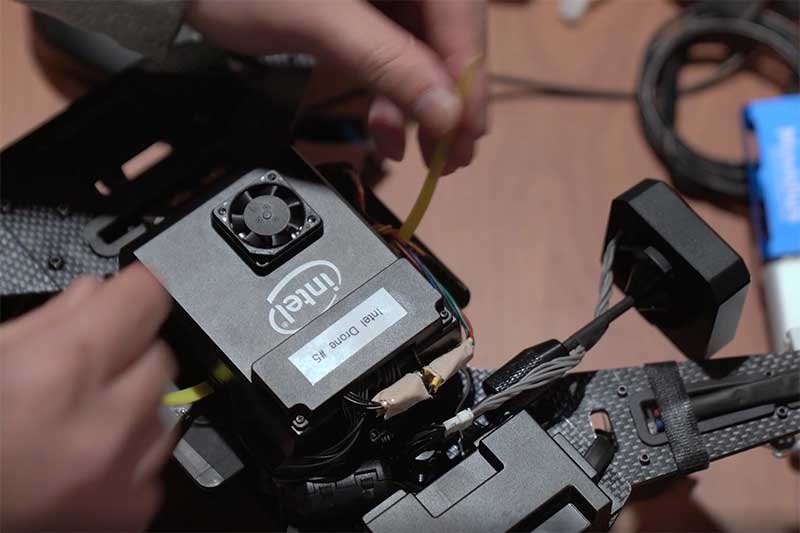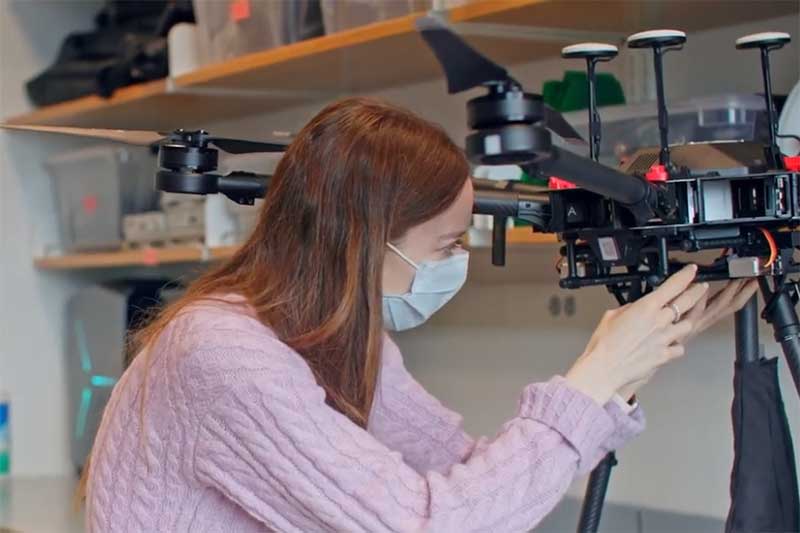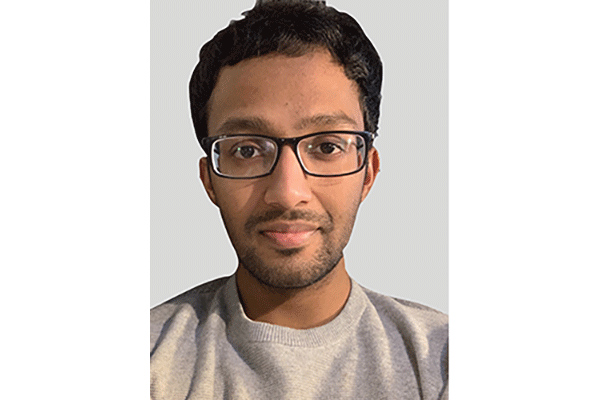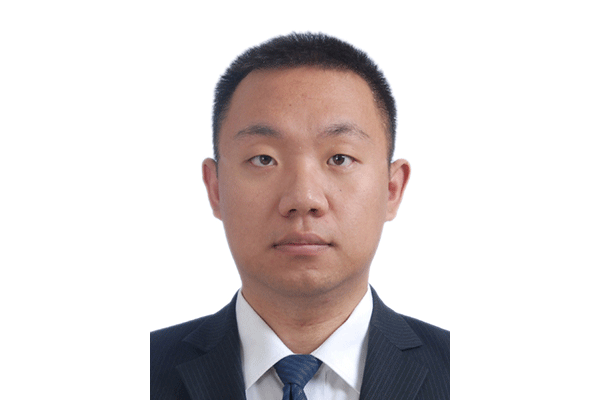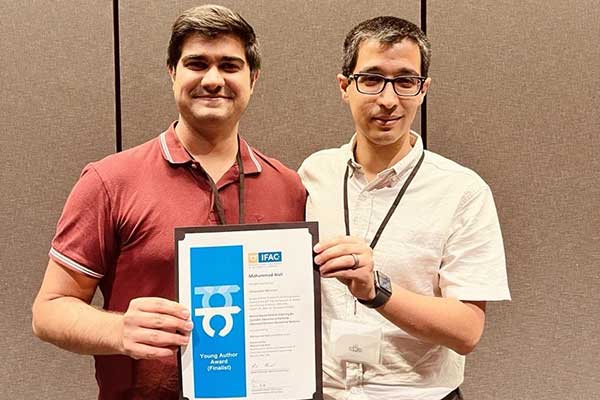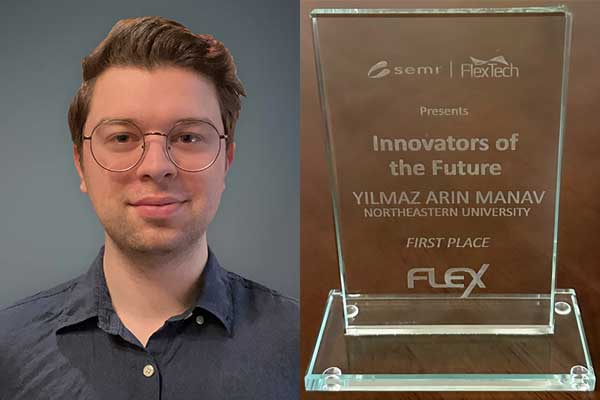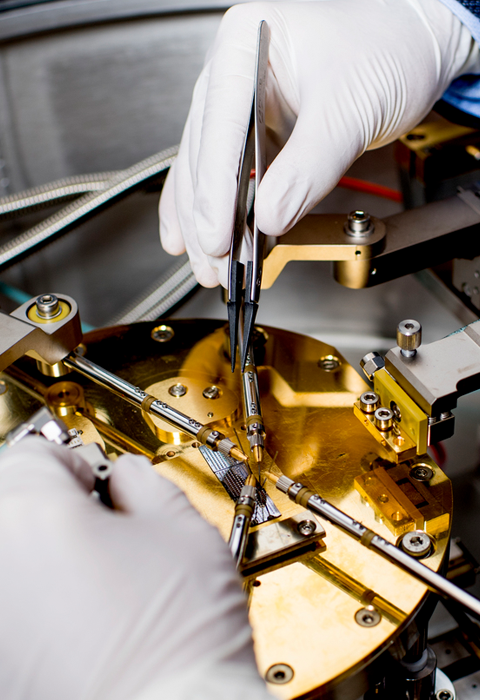
PhD in Electrical Engineering
PhD in Electrical Engineering
Overview
The PhD program in Electrical Engineering aims to teach students to develop efficient systems that contribute to business, safety, health, and entertainment.
Innovative Curriculum
Northeastern’s PhD program in Electrical Engineering offers the opportunity to pursue cutting-edge research in the following areas: Signal and image processing; biomedical signal processing and brain-computer interface; pattern recognition; adaptive signal processing; wireless and underwater communications; information theory and coding; robust and distributed control; optics, photonics, acoustics, and magnetics sensors; radio frequency chip design; digital and mixed-signal integrated circuits; low-power very-large-scale integration; modeling and analysis of large scale power grids during normal operation and under faults; dc-dc converters, inverters, rectifiers, and ac-ac converters; as well as modulation techniques used in power electronics.
The PhD in Electrical Engineering is completely research-based with minimal and flexible course requirements which can be pursued as full-time or part-time. The exact nature of the program of study will vary among candidates depending on the dissertation subject area and the candidate’s preparation. The program will include one minor area of study in an area other than that in which the candidate is concentrating. The minor area may be in another discipline within electrical and computer engineering or the minor area may be in another relevant technical or scientific discipline. Applicants can enter the PhD program with either a BS or an MS degree in Electrical Engineering or a closely related field.
PhD in Electrical Engineering students also select their concentration from the following four areas.
- Communications, Control, and Signal Processing
- Electromagnetics, Plasma, and Optics
- Microsystems, Materials, and Devices
- Power Systems
The ECE department offers a variety of graduate courses giving students the flexibility in planning their course requirements according to their research requirements and personal interests. Many graduate courses are offered in two sections; in-class and streaming video. Part-time students and full-time students who have schedule conflicts can register in the streaming video sections.
- Northeastern ECE is the host or major partner in nine state-of-the-art research centers
- Financial support available
- Internationally-recognized Internships & Co-op opportunities
- Professional Development Workshop Series to complement the research and classroom experiences
- Northeastern ECE is a research powerhouse in the Boston area and beyond
- An ability to identify, formulate, and solve complex engineering problems.
- An ability to explain and apply engineering design principles, as appropriate to the program’s educational objectives.
- An ability to produce solutions that meet specified end-user needs.
- An ability to apply analytical, numerical, and/or experimental methods to analyze and design complex engineering systems, and to identify, formulate, and solve new challenging electrical engineering problems.
- An ability to direct independent scientific research in electrical engineering and related fields.
- An ability to formulate new research plans and communicate the research outcomes
(both oral and written communication of research results).
- Qualifying exam: Students who already hold an MS degree and matriculate in the fall semester must take the qualifying exam in the spring semester of their first year. Students matriculating in spring semester, or students who hold a BS degree and matriculate in the fall semester , can postpone the exam to the second spring semester. Those who fail the exam the first time, have one more chance to take the exam. These students must take the exam the next spring after their first attempt.
- Research Advisor: Students should have a research advisor one year after their matriculation.
- Thesis Committee: The Dissertation Committee must be formed not later than six months after passing the qualifying exam.
- Comprehensive exam: The deadline for comprehensive exam is two years after passing the qualifying exam.
- Dissertation Defense: The dissertation defense should be scheduled at least one year after taking the comprehensive exam.
Our graduates pursue careers within academia and beyond.
- Middle East Technical University
- University of Vermont
- Nexant Corporation
- Harvard Medical School – Spaulding Rehabilitation Hospital
- Qatar University
- Honeywell
- Universidad Tecnologica de Bolivar
- Oak Ridge National Laboratory
- Metamagnetics Incorporated
- LoopPay Incorporated
- Merson Shanghai Co. Ltd.
- AMD
- Qualcomm Technologies Incorporated
- Geophysical Survey Systems Incorporated
- Mathworks
- Baylor College of Medicine
- Setem Technologies, LLC
- MIT Lincoln Laboratory
- University of California, Los Angeles
- Argonne National Laboratory
- University of California, Berkeley
- Boston Children’s Hosptial
- Japanese Ministry of Defense, Tokyo
- Siemens Healthineers
- Intel
- Sanofi
Experiential Learning
With a large number of high-tech firms in and around Boston, both start-ups and large multinational corporations, many PhD students do an internship during their program while remaining right here in Boston. Often their advisor is instrumental in identifying the internship position, with a funding sponsor or research collaborator, be they in Boston or elsewhere in the United States. Internships can be informally arranged for several months at any time during the calendar year.
PhD students can also take advantage of the more formally arranged co-op program which entails up to 8 months of work experience preceded by several professional development courses to prepare students. The Cooperative Education Program, also known as a “co-op,” is one of the largest and most innovative in the world, and Northeastern is one of only a few that offers a co-op program for graduate students. Through this program students gain professional experience, employed in their field of interest as part of the academic curriculum. Northeastern has over 3,000 co-op employer partners. Additionally, students can participate in the university’s Experiential PhD program.
Academic Advising
The Academic Advisors in the Graduate Student Services office can help answer many of your questions and assist with various concerns regarding your program and student record. Use the link below to also determine which questions can be answered by your Faculty Program Advisors and OGS Advisors.
Admissions & Aid
Ready to take the next step? Review degree requirements to see courses needed to complete this degree. Then, explore ways to fund your education. Finally, review admissions information to see our deadlines and gather the materials you need to Apply.
